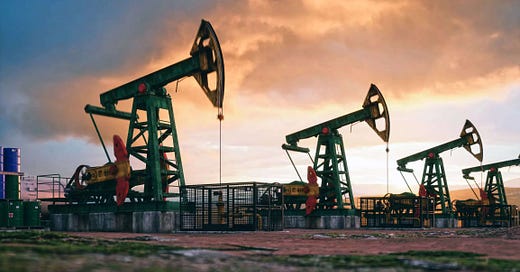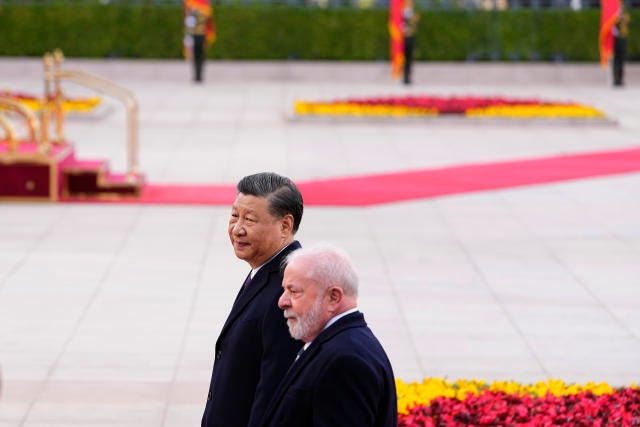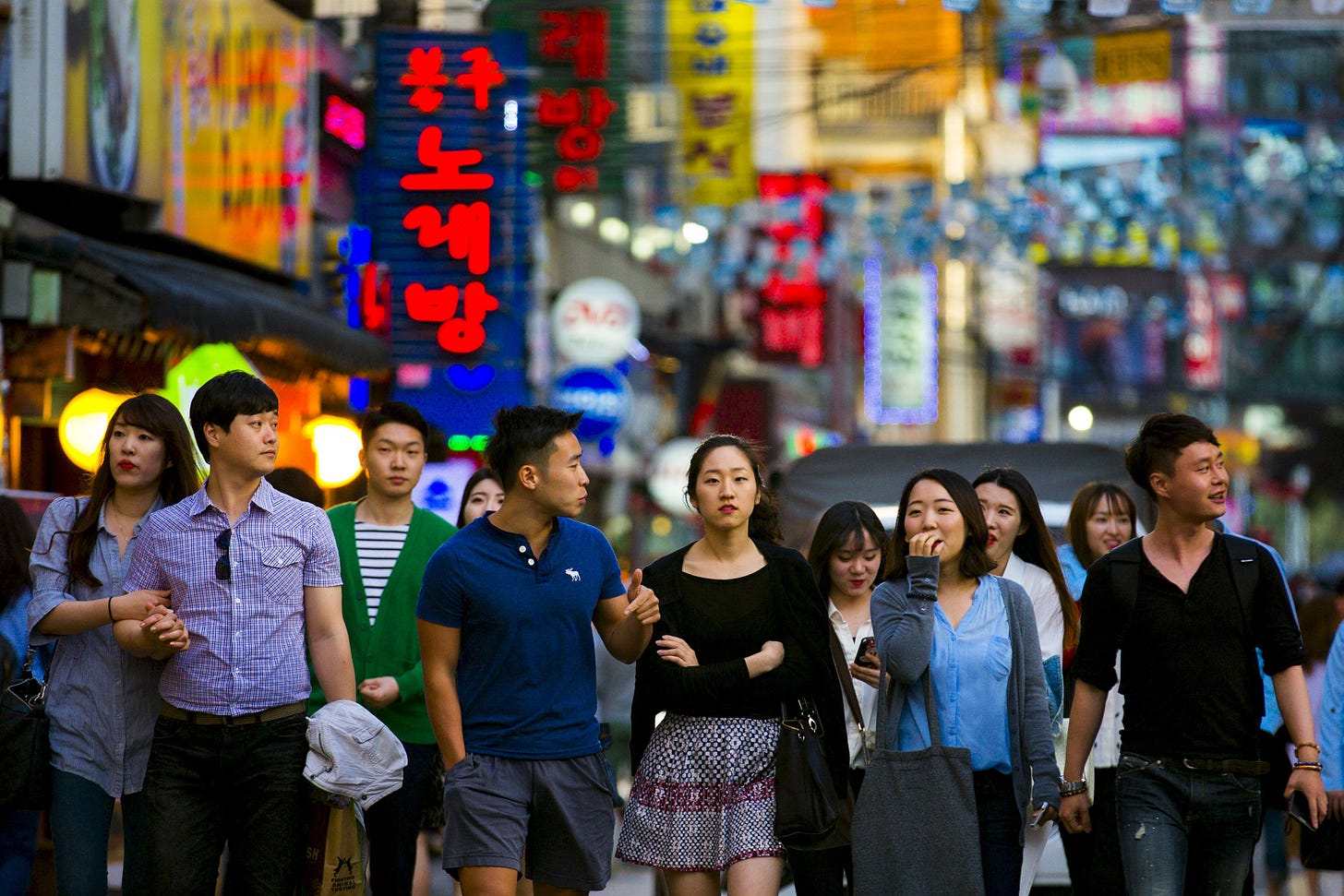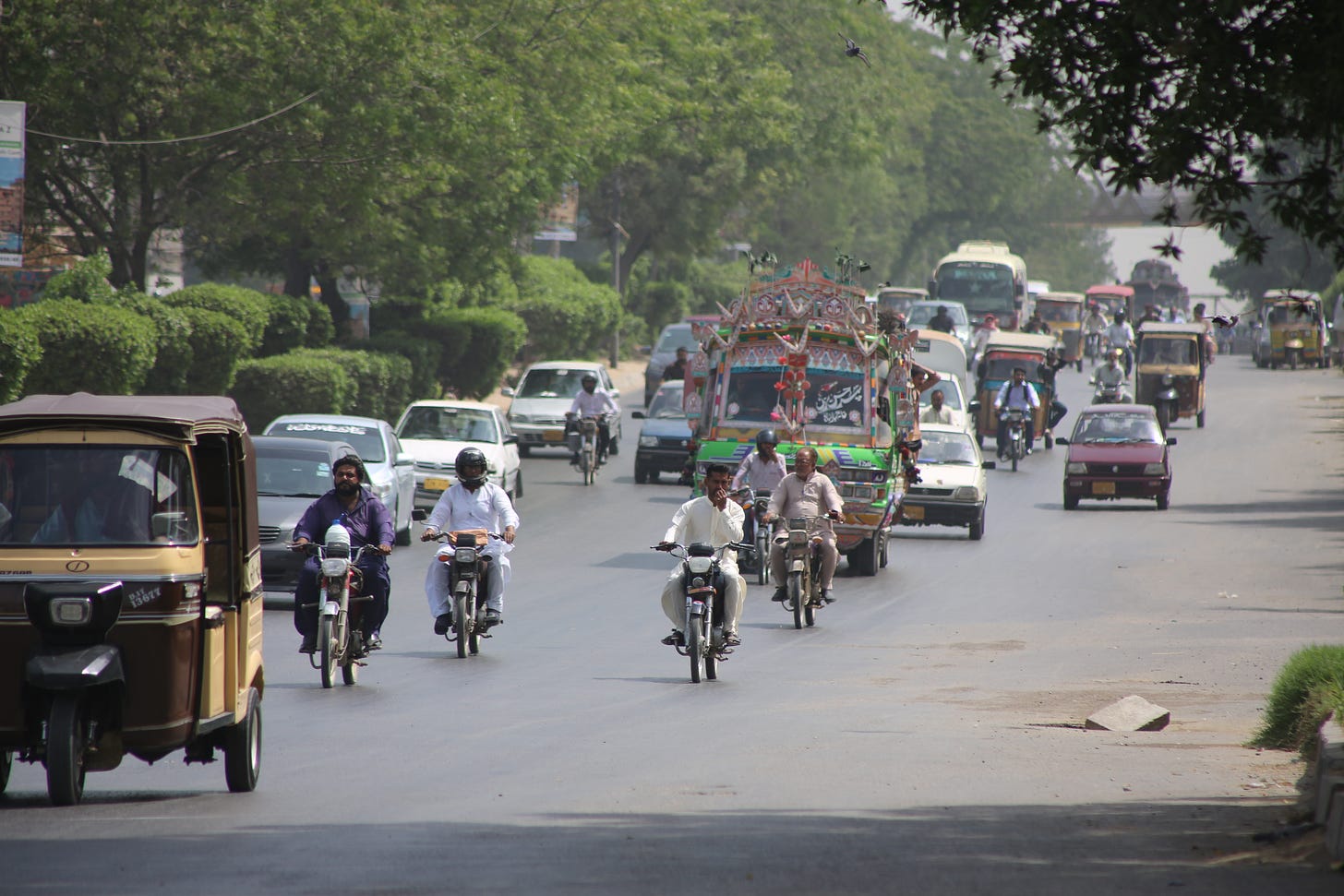Emerging Markets Monitor - April 14
IEA Raises Oil Demand Forecast, Lula Visits China, JP Morgan Likes Asian Consumer Co's, Egypt CB Head Rare Public Remarks, UAE $1B Pledge Boosts Pakistan IMF Deal
The Top 5 Stories Shaping Emerging Markets from Global Media - April 14
IEA Raises 2023 Oil Demand Forecast As China Reopens
The National
“The International Energy Agency has raised its 2023 global oil demand estimates as top crude importer China reopens its economy after about three years of adhering to a strict zero-Covid policy.”
“Global oil demand will rise by two million barrels per day to a record 101.9 million bpd this year, the Paris-based agency said on Friday. Countries that are not members of the Organisation for Economic Co-operation and Development, buoyed by a resurgent China, will account for 90 per cent of the growth.”
“‘While oil demand in developed nations has underwhelmed in recent months, slowed by warmer weather and sluggish industrial activity, robust gains in China and other non-OECD countries are providing a strong offset,’ the agency said.”
“In the first quarter of this year, OECD oil demand fell 390,000 bpd annually but a solid Chinese rebound lifted global oil demand by 810,000 bpd above the levels of the previous year to 100.4 million bpd.”
“A much stronger increase of 2.7 million bpd is expected through to the end of the year, propelled by a continued recovery in China and international travel, according to the energy agency.” Fareed Rahman reports.
Brazil’s Lula Seeks Deeper Trade Ties in China Visit
Wall Street Journal
“Brazil’s leftist President Luiz Inácio Lula da Silva will meet Chinese leader Xi Jinping in Beijing on Friday—a state visit that officials said would tackle topics including satellites to monitor the Amazon rainforest and a proposal for ending the war in Ukraine.”
“…The meeting marks a deepening of Brazil’s relationship with its largest trading partner, officials and Chinese scholars said, as Beijing looks to counter what it sees as American-led efforts to suppress the Asian nation diplomatically and economically.”
“…Mr. da Silva told journalists earlier this month that he planned to encourage China to join what has been nicknamed a ‘peace club’ of nations in the global south, including India and Indonesia, to mediate an end to the war in Ukraine with Russia.”
“The conflict has taken a heavy toll on the Latin American country, hampering critical supplies of Russian fertilizer to Brazil’s farms, pushing up food prices and threatening to hinder Brazil’s ability to meet China’s demand for commodities. Brazil, the world’s largest producer of coffee, soybeans and sugar, imports some 85% of its fertilizers, with a fifth of those typically from Russia.”
“…China overtook the U.S. in 2009 as Brazil’s biggest trading partner, as the Latin American nation became the go-to supplier to feed the Asian nation’s rapidly-growing population and factories.”
“Brazilian exports to China totaled some $89.7 billion last year, of which 36% was soybeans, 20% iron ore and 18% crude oil, according to government data.”
“…Brazil is now one of the leading destinations for Chinese investment, taking the top spot briefly in 2021 thanks to a particularly large investment—$2.9 billion—in an oil field off the coast of Rio de Janeiro.” WSJ reports.
Looking for Strong EM Plays? Seek Asian Consumer Co’s, Not Exporters: JP Morgan
South China Morning Post
“Asian companies with strong domestic demand will perform better and offer bountiful returns for investors, thanks to China’s economic recovery and consumer demand in the Asia-Pacific region, said the chief market strategist at the asset-management unit of Wall Street’s largest bank.”
“‘We prefer Asia and China equities, and more domestically driven companies rather than exporters,’ said JPMorgan Asset Management’s Tai Hui. ‘We think some of the more domestically connected economies are likely to perform better on the back of recovery, and consumer demand in China.’”
“Investors should look to companies with strong domestic markets that can mitigate recessionary risks in the United States and geopolitical tensions between the US and China, Hui told a press conference on Friday.”
“Companies with business coming from their local markets will be less sensitive to trade sanctions, he added. Taiwan and South Korea, which are export driven, will, on the other hand, find it harder to sustain the outperformance they experienced last year.”
“‘…The economic momentum in Asia, in China, looks more optimistic than other regions, and central banks across Asia, and in the US, are nearly done with interest rate raises,’ Hui said.” Mia Castagnone reports.
In Rare Public Appearance, Egypt CB Head Explains Policy
Bloomberg
“Egypt’s central bank chief said higher interest rates can do little to contain inflation that he described as stoked mainly by supply issues.”
“With the central bank raising interest rates by 1,000 basis points over the past year, ‘we’ll not hesitate to do more, but we need to be very careful,’ Governor Hassan Abdalla said in rare public comments in Washington late on Thursday. ‘The interest rate is not the only tool.’”
“Speaking at an event during the World Bank and International Monetary Fund’s Spring Meetings, Abdalla used his appearance to map out an approach beyond monetary policy in tackling the fastest inflation Egypt has seen since the aftermath of a currency crisis in 2016.”
“Though external shocks to commodity prices and three currency devaluations have been a major contributor to driving up the cost of consumer products, Egypt also faces a squeeze on the supply of imported good and raw materials after restrictions last year.”
“‘A lot of our inflation is imported and a lot of it is due to supply problems,’ Abdalla said. ‘Not only supply prices but supply issues including a backlog that has resulted from some previous regulations. And this in itself is not and will not be addressed by interest rates.’”
“…Even with the latest hike, Egypt’s inflation-adjusted borrowing costs are one of the lowest among more than 50 major economies tracked by Bloomberg. A real interest rate that was once the world’s highest is still far below zero, deterring portfolio investors from returning to a country in need of external funding.” Mirette Magdy reports.
Pakistan Gets Closer to IMF Deal After UAE Pledges $1 Billion
Reuters
“The United Arab Emirates has confirmed financial support of $1 billion to Pakistan, the South Asian nation's finance minister said on Friday, removing a key hurdle to securing a much-awaited bailout tranche from the International Monetary Fund.”
“The commitment is one of the IMF's last requirements before approving a staff-level pact to release a tranche of $1.1 billion, delayed for months, that is crucial for Pakistan to resolve an acute balance of payments crisis.”
“…The pledge makes the UAE the third country, after Saudi Arabia and longtime ally China, to come to Pakistan's assistance, as external financing is needed to fully fund the balance of payments gap for the fiscal year that ends in June.”
“…Pakistan's bonds, which have slumped nearly 70% over the last year as the country's troubles have mounted, climbed for a second day running on the confirmation. The rise was almost 5% for its bond with closest payment date - April 15 next year - taking it to almost 50 cents in the dollar, compared to 46 cents a few days ago.” Reuters reports.
Gather ye rosebuds while ye may,
Old Time is still a-flying;
And this same flower that smiles today
Tomorrow will be dying.
Robert Herrick (1591-1674)







